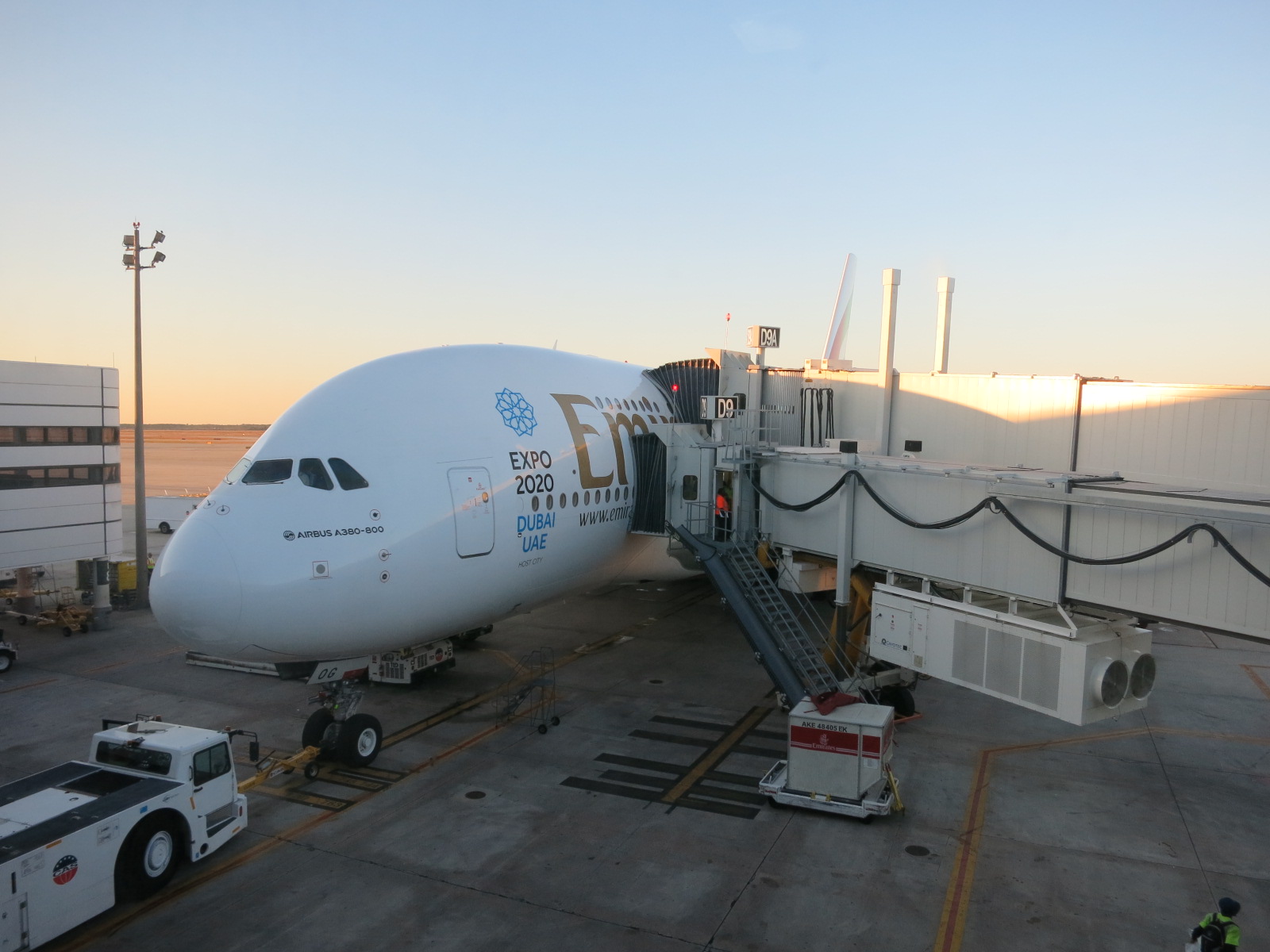At the Dubai Air Show Emirates placed a firm order for 50 Airbus A350-900s “at $16 billion in list prices. Deliveries will start in May 2023 and run until 2028.”
Great news for Airbus? No, not really. This is the same deal announced last February, when Emirates reduced its outstanding order for Airbus A380s, and ordered 30 A350s and 40 A330neos in their place. Moving all the orders to A350s, which Emirates ordered in 2007 – and cancelled in 2014 – is a blow to the A330neo program. And 50 A350s is still less than the 70 A350s Emirates had ordered 12 years ago.

Emirates Airbus A380
There are some basic principles to follow in interpreting aircraft orders.
- Orders are announced. Those mean very little. They’re often non-binding letters of intent, an agreement to agree, that may be real or designed for PR.
- Then orders are announced again when they’re actually placed. Terms vary in how firm they are, what costs may be associated with changes, delays, or termination.
- The firm order may be different than the announced order.
- The prices that are announced when orders are placed (‘order value’) are always fake. Deal values are cited at ‘list prices’ although literally no one pays list prices. Roughly speaking airlines pay about half of list price.
In June Boeing announced that British Airways parent IAG had ordered 200 Boeing 737 MAX aircraft. Boeing was desperate. IAG CEO Willie Walsh is a bottom-feeder. This was a deal made in heaven and there was little reason for the airline group not to do this.
They no doubt got much better pricing than they’d ever get at any other time – with the plane grounded – and Boeing got a PR win. But the June announcement still hasn’t turned into a real order.
This is a very strange game. Everybody knows that prices are lower than reported. Everybody knows that many announced orders won’t ever happen. And most people know that the same orders get announced more than once. There’s a cottage industry in tracking what orders are ‘real’ (and non-duplicative). Yet media keep reporting statements as though they’re true, though better reporters offer the relevant cautions and trace the history of a given order.


Company valuations have a similar issue in the press — due to the nature of preferred stock and the ancillary terms that accompany venture capital funding, investing “at $100 million valuation” does not at all mean the whole company would sell in cash for $100 million to a buyer paying fair market price. We just grin and accept it as an alternate version of the English language where numbers mean something other than their obvious meaning.
I agree with you, and disagree with you. Those of us who understand how these orders or intents to order actually play out are small numbers. The general flying public understand little of this. In the case of the 737Max problems…Boeing has a huge PR nightmare on its hands, dealing with a plane that few of the general public will want to fly on. Bring IAG order into the mix and, for Boeing, there could be substantial goodwill message sent to the general public, here is a large airline company showing faith in the 737Max.
So yes, these orders or intents to order are not firm and not entirely real and not at list prices, but they are still very real things.
Isn’t this part of ‘The Game”? 🙂
Jesus Karen…. “IAG CEO Willie Walsh is a bottom-feeder.”
By your same arguement, Conrad Hilton was also a bottom feeder, only buying hotels in recession
I have always questioned Airbus’ order book and some their decisions. The A380 should have never been built, the A350 was finally getting traction when they went neo crazy and did the a330 neo which hasn’t been a success. The A320 and it’s Neo, LR and XLR have made the most business and travel sense. Their order book continues to show orders that are either intentions or have been cancelled years ago ( I think Virgin’s A380s are still listed). Come on boys, no one is believing your order book.
Boeing has done some bone head moves of late as well; should have not done built the MAX instead they should have focused on a narrow or semi wide body replacement for the 737. . 757 and 767 should have been re-engine, 747-8, dumb idea (except for cargo). Thank goodness the 787 and 777 are working out. The 777X from what I hear will see a surge once it starts to fly. None the less. Boeing used to do their own thing and not worry about Airbus or Lockheed or Douglas (okay dating myself a bit, but you get the picture). They should start doing that again. Airbus is winning the narrow body and MOM war, Boeing is winning the widebody, long haul and cargo war. Time for Boeing to think what’s next and Airbus to stop re-engining everything, they are lucky it worked once!